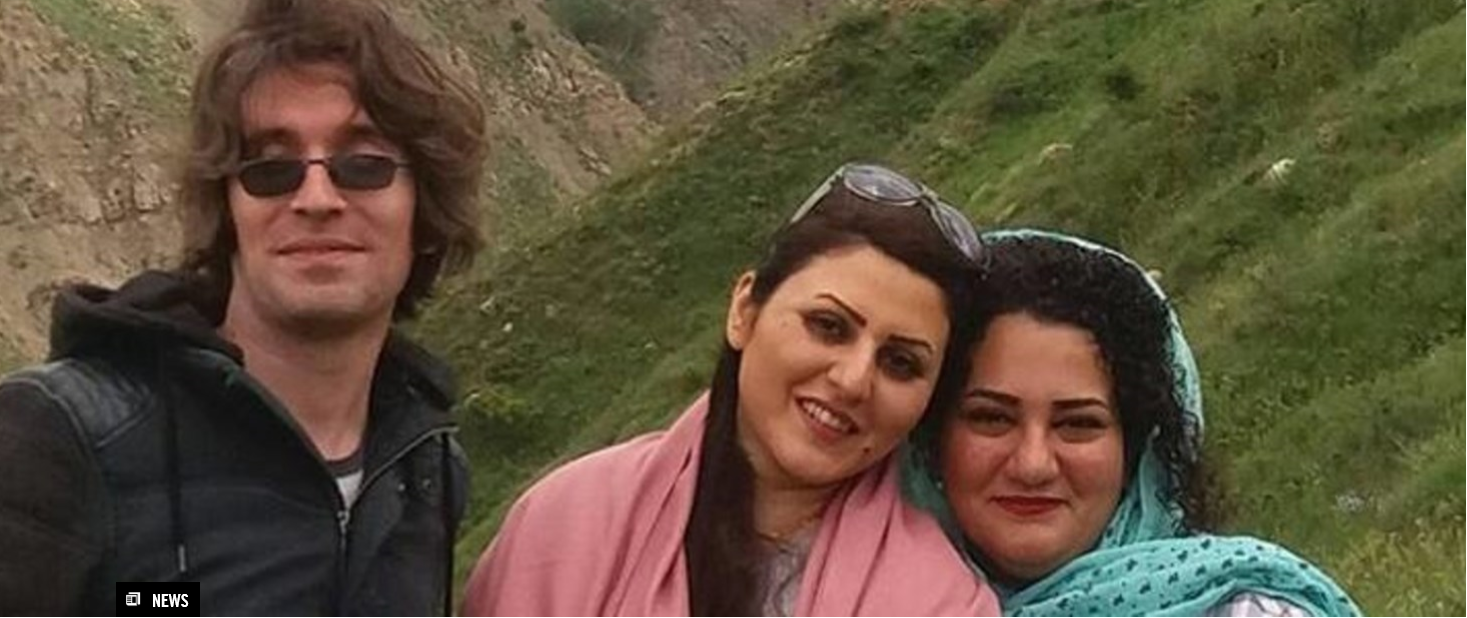Two women human rights defenders jailed for defending women’s rights and opposing the death penalty are being subjected to escalating ill-treatment in Shahr-e Rey prison, a former industrial chicken farm in Varamin, a town on the outskirts of Tehran, Amnesty International revealed. The organization is calling for the women’s immediate and unconditional release.
Atena Daemi and Golrokh Ebrahimi Iraee are being held in unsanitary conditions in the quarantine section of the prison and their access to the outside world is being severely restricted. People detained in this section are given inadequate food and provided with salty water to drink. Golrokh Ebrahimi Iraee, who has been on hunger strike for 35 days, is in very poor health. In the past week, she was placed on IV fluids without her consent, and at times has been unable to move. She is suffering from severe cramping in her muscles, which the prison doctor has confirmed is a result of the hunger strike.
“We are extremely alarmed by reports from Shahr-e Rey prison about the targeting and escalating ill-treatment of Golrokh and Atena. They should never have been imprisoned in the first place, and now it seems the Iranian authorities are deliberately subjecting them to cruel, inhuman and degrading treatment because of their outspoken activism and continued human rights work even behind bars,” said Philip Luther, Amnesty International’s Research and Advocacy Director for the Middle East and North Africa.
Their lawyer has lodged an official complaint with the office of the prosecutor in Tehran, arguing that the transfer to Shahr-e Rey prison is illegal under the regulations on classification of prisoners, and places Atena and Golrokh in considerable danger as the prison is used to incarcerate women who have been convicted of serious violent crimes. There is a prevalence of violence, mental health issues and self-harm among prisoners.
The prosecutor and the associate prosecutor of the prison have said that the transfer was carried out on their orders and that they “do not care” whether it was legal or illegal. They have refused to answer the complaint directly so far. The associate prosecutor of the prison has said the women will complete the remainder of their sentences in Shahr-e Rey prison.
Atena Daemi is serving a sentence of seven years solely for her peaceful human rights activism, including charges related to distributing anti-death penalty leaflets and posts on Facebook and Twitter criticizing Iran’s execution record. Golrokh Ebrahimi Iraee is serving a sentence of three years for writing an unpublished, fictional story on the practice of stoning women to death for adultery.
“The sentences handed down to Atena and Golrokh beggar belief. They must be released immediately and unconditionally by the Iranian authorities. Instead of punishing those who dedicate their lives to the cause of human rights in Iran, the authorities should start working to ensure human rights defenders are able to operate in a safe environment, free from fear or reprisals,” said Philip Luther.
In recent weeks, both Atena Daemi and Golrokh Ebrahimi Iraee have been generally barred from using the telephone, even to stay in touch with their families. They are only allowed to make one phone call per week under the supervision of a male prison guard.
Fellow prisoners have been forbidden from interacting or speaking with them. Three death-row inmates have been following Golrokh and Atena, even when they use the bathroom and showers, apparently to intimidate them on the orders of prison officials.
The women human rights defenders have reported that they are still wearing the same items of clothing they were wearing when they arrived in the prison over a month ago. Their families have been prevented from providing them with fresh clothes.
According to widely published reports and information provided to Amnesty International, the conditions in Shahr-e Rey prison are appalling, falling well below the standard minimum rules for the treatment of prisoners. Prisoners have reported urine-stained floors, filthy showers and bathroom facilities, a severe shortage of beds and the prevalence of contagious diseases. Prisoners have also reported poor quality food containing rock particles and salty, undrinkable water.






















